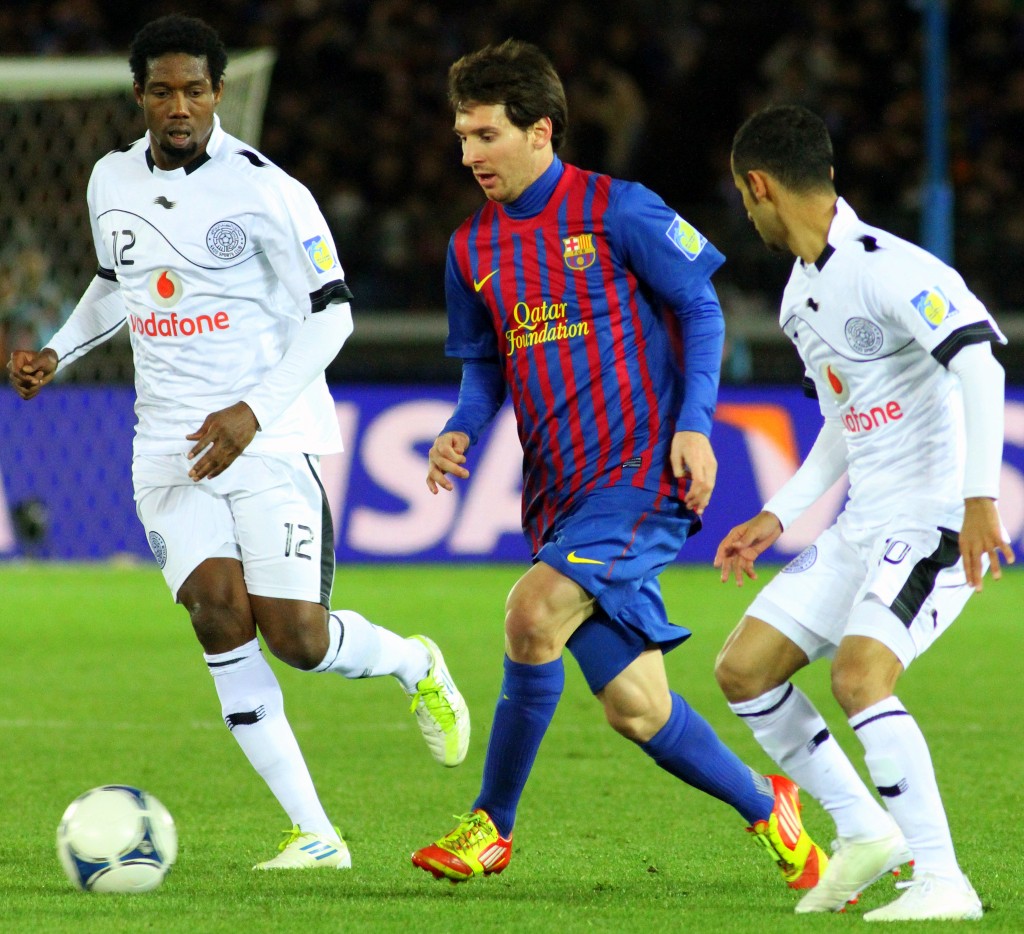
Standing at a mere 1.69m, Lionel Andres Messi does not feel like your average imposing striker. He isn’t, and “average” surely cannot be used to describe this Argentine phenomenon. Deployed as a ‘false number 9’ for both club and country, Messi imposes not by his frame, but by his skills which are arguably the best of this generation.
While rival Cristiano Ronaldo has his tricks, flicks and his famed stepovers, Messi keeps the ball close to his feet and weaves his magic. While it may be unfair to compare players of different generations, a more natural comparison is often made between him and another Argentine legend. From the similarities in their special dribbling abilities and skill to their height and stature, Messi and Diego Maradona will draw inevitable comparisons between themselves. Even their goals have uncanny similarities. Messi’s ‘Hand of God’ goal against Espanyol and the mazy solo goal inflicted upon Getafe in the Spanish La Liga bore striking resemblances to the two historic goals scored by Maradona against England in the 1986 World Cup. The goals shall remain etched in history for their controversy as well as the audacious skills that made them happen.
“I have seen the player who will inherit my place in Argentine football and his name is Messi. Messi is a genius and he can become an even better player.” says Diego Maradona, Argentine football legend
2012 was a standout year for the Argentine star who scored 91 goals to break the long-standing record for the most number of goals scored in a year set by Gerd Muller. Voted Argentine Sports Personality of the year in 2011, and the winner of three Ballon d’Ors (with a fourth on the way), Messi has just about won every individual accolade and several team awards that most players can only dream of. Comparisons are always going to be made between him and the Portugese and Real Madrid hotshot Cristiano Ronaldo, as well as great players before him, but Messi may quite possibly be the best in the world, of all time.

Incredible success in football can have unwelcome side-effects. Brazilian superstar Ronaldinho’s partying tendencies harmed his career, while the late George Best had been plagued by alcoholism till his last breath. However, Messi has remained humble throughout his career. His feet have remained firmly on the ground while his fame has soared. This might be the reason why Messi has managed to maintain his game at the highest level for so long, and is also a testament to his maturity.
His humility might be a product of his childhood. Messi was diagnosed with a growth hormone deficiency when he was eleven. On making it through the trials, Barcelona offered to sponsor Messi and pay for his medical treatment. As a result, Messi took the opportunity to move to Europe and join the famed Barcelona academy which consisted of current crop of Barcelona players like Gerard Pique and Cesc Fabregas. Being schooled at the La Masia helped Messi’s overall development and Messi knows that he is indebted to the club. He has also arguably repaid the Barcelona’s faith and investment in full by becoming the player he is today.
Having seemingly accomplished all there is to achieve, one wonders what’s next for the young Leo Messi. By playing as the ‘false number 9’ after successful experimentations by ex-Barcelona manager Pep Guardiola, Messi has also revolutionised the striker’s role. However, critics will be quick to point out that Messi has not achieved success with his country. While he has won an incredible five La Ligas, three Champions League titles and every other available title with FC Barcelona, the same cannot be said of his exploits with the national team. The 2008 Olympics Gold Medal is the single significant prize he has won with the Argentinean senior team.
It is argued that Messi is unable to carry his national team like he is at Barcelona. With the Catalans, Messi has the luxury of being in the company of talented players like Xavi, Iniesta and Fabregas. These are footballers able to feed him a consistent supply of defence-splitting passes. He is part of the Barcelona dream team, and unfortunately those players mentioned above are also the footballing maestros leading the dominant Spanish team. If Messi greatly desires glory with the Albicelestes, he is perhaps unfortunate to be facing the world-beaters in Spain, a side comprising the very players who have assisted him in his European domination. As a result, it will be challenging for Messi to win the World Cup in the white and blue. Elusive International honours continue to be the only obstacle in achieving greatness. If he does win the World Cup, Messi will complete his illustrious footballing journey and be eternally idolised as arguably the world’s best player of all time.
At just 25 years of age, it is almost unreal to realise that Messi has unquestionably achieved legendary status. He has the luxury of time to settle the debate as to who really is the best footballer of all time. And we have the luxury of enjoying his sublime skills in the years to come.


